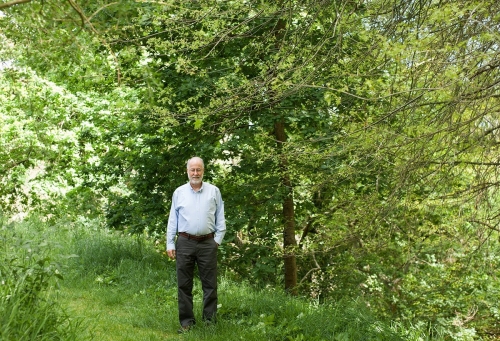
First published in Bay Buzz https://baybuzz.co.nz/water-issues-need-fixing/
As new residents of Havelock North, my wife Maryanne and I were among the 5,000 residents affected by the Gastro Crisis in 2016. The experience was formative.
Maryanne and I were lucky. Our tussle with gastro was quite mild, but it certainly was not what we were expecting when we moved from Wellington in February 2016. Many reasons motivated our move – we liked the Mediterranean climate, and it’s common knowledge that the weather is better than in Wellington. Gardening in Wellington can be frustrating – I’ve had potato crops sawed off at ground level by the wind, and some years summer doesn’t seem to arrive at all.
Plus, we had happy memories of the Bay. Maryanne taught high school here in the 1980s, and we were married at Craggy Range in 2008 by one of her teaching colleagues. Those memories and the possibility of a good garden made retirement here appealing.
And even though we knew few people here, I was approached to lead implementation planning for a regional biodiversity initiative, launched only months earlier. I’d had a long career as an ecologist and conservationist in Wellington, but as a newcomer I didn’t believe I was qualified – I didn’t know any of the local people who’d worked hard to develop the strategy, or who the stake holding groups might be. I didn’t even know the names of the rivers in the region.
That apparently got me the job – the possibility that I could cast an impartial eye over biodiversity in the Hawke’s Bay and work with the many interested parties.
My work was just beginning when the gastro crisis struck. Both Maryanne and I were ill for a few days before the news of the contamination broke. The ‘Boil Water’ notice made the basis for our gurgling tummies clear. A shared disaster reveals common humanity. We came to feel part of the community when strangers in shops would enquire about our gastrointestinal health … and were often keen to share their own condition!
The state of our water is an environmental issue that everyone in Hawke’s Bay can relate to. And ‘water’ is not just one issue but many.
Contamination brought death for some and misery for many in Havelock North. More recently, the heavy rains in early November flushed sewage into the Ahuriri estuary, where it will linger for days or weeks. Sewage and storm water management and the accompanying odours present Waipukurau with ongoing issues. Sharing the limited water resources in the Bay will only become more contentious as populations and demand increase. Changing climate regimes will amplify every issue.
Water management may be the central environmental problem for Hawke’s Bay’s future. Fortunately, our councils are grappling with the many aspects of water issues. Central Hawke’s Bay District Council, Hastings District Council, Hawke’s Bay Regional Council, Napier City Council and Wairoa District Council have all reviewed their three-waters services (drinking, waste, and storm water).
At the centre remains the source of our water – our rivers need to be fixed.
Data in 2018 estimated that only about 60% of Hawke’s Bay rivers were clean enough for swimming, but Government standards at the time were criticised as lax. Results of course vary widely between rivers and locations on a single river. In a 2016 radio interview after the Havelock North gastro crises, Professor Russell Death, a national expert on freshwater ecology at Massey University, said that studies with his students had ranked the Tukituki River as the worst for aquatic life in the country. The Regional Council’s website advises Caution before deciding to swim in the Tukituki today.
We can take hope in the fact that attitudes are changing. The Hawke’s Bay Regional Council has turned its attention to our rivers with wide ranging catchment plans. They will need to continue consulting widely with all interest groups. Critical to these discussions are farmers and growers, who understand the economics of water and the need to change practices in the face of changing climate.
Equally importantly, tangata whenua are essential contributors to any conversation about the rivers of our region. Rivers are the lifeblood for Māori, and their views and management will be key determinants of the future of our rivers.
Cleaning our rivers may seem an insurmountable obstacle now, but all hope is not lost. If we work together, smartly, the day will come when our rivers are swimmable and enhance our environment.
Fixing our water will mean that we never have to live through another Gastro Crisis – the lasting effects of which continue to affect some residents of Havelock North.
We owe it to ourselves, and we owe it to future generations.
Charles Daugherty is Emeritus Professor of Ecology, Victoria University. Awarded an ONZM for his work on tuatara ecology and management. A former trustee of Zealandia, he’s involved with Biodiversity Hawke’s Bay since retiring to Hawke’s Bay, serving as chair of the trust board, but writing in his personal capacity.
17 February 2021
Disclaimers and Copyright
While every endeavour has been taken by the Hawke's Bay Regional Council to ensure that the information on this website is
accurate and up to date, Hawke's Bay Regional Council shall not be liable for any loss suffered through the use, directly or indirectly, of information on this website. Information contained has been assembled in good faith.
Some of the information available in this site is from the New Zealand Public domain and supplied by relevant
government agencies. Hawke's Bay Regional Council cannot accept any liability for its accuracy or content.
Portions of the information and material on this site, including data, pages, documents, online
graphics and images are protected by copyright, unless specifically notified to the contrary. Externally sourced
information or material is copyright to the respective provider.
© Hawke's Bay Regional Council - www.biodiversityhb.org / 027 231 9367 / info@biodiversityhb.nz